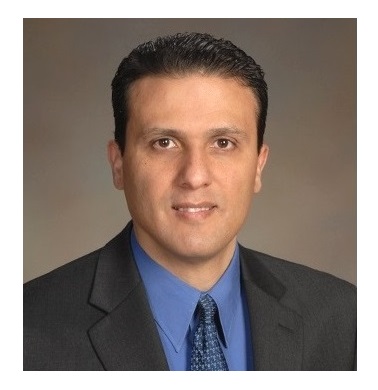Keynote title: Multimedia Big Data Analytics for Data Science
Shu-Ching Chen
Professor, School of Computing and Information Sciences,
Florida International University, USA

Abstract:
The idea of Data Science has gathered many different perspectives throughout different domains and articles. In this talk, Data Science is discussed as the theories, techniques, and tools designed for data-centered analysis and the methodology to apply them to real world applications. We have revolutionized the process of gathering multimedia data from an abundance of sources. Things such as mobile devices, social networks, autonomous vehicles, smart household appliances, and the Internet have increasingly grown in prominence. Correspondingly, new forms of multimedia data such as text, numbers, tags, networking, signals, geo-tagged information, graphs, 3D/VR/AR, sensor data, and traditional multimedia data (image, video, audio) have become easily accessible. Therefore, older traditional methods of processing data have become increasingly outdated, emphasizing the demand for more advanced data-science techniques to process these heterogeneous, large data sets which fluctuate in quality and semantics. Additionally, the inconsistencies of utilizing single modality severely hinders our ability to withstand multiple data sources simultaneously. Upon analyzing the capabilities of each model, it becomes pivotal for us to consider the multi-modal frameworks to leverage the multi-data sources to assist data analytics. With the implementation of data science and big data strategies, we are able to efficiently capture, store, clean, analyze, mine, and visualize exponential growth of multimedia data; which is responsible for the majority of daily Internet traffic. With the multimedia and data science fields growing with importance, the goal of big data revolution is to bridge the gap between data availability and its effective utilization which enables research, technological innovation and even decision making. In this talk, I will discuss the research opportunities and challenges in multimedia big data for data science. A set of core techniques will be discussed in details. I will also discuss how we apply our multimedia research to practical data science applications such as disaster information management.
Bio: Dr. Shu-Ching Chen is a Professor in the School of Computing and Information Sciences (SCIS), Florida International University (FIU), Miami. He received his Ph.D. in Electrical and Computer Engineering from Purdue University, West Lafayette, IN, USA in 1998. He is the Director of Distributed Multimedia Information Systems Laboratory, Co-Director of the Integrated Computer Augmented Virtual Environment (I-CAVE), and Associate Director of Robotics and Digital Fabrication Lab (RDF). His main research interests include multimedia big data, content-based image/video retrieval, multimedia systems, multimedia data mining, and disaster information management. He has authored and coauthored more than 360 research papers and four books. He has been the PI/Co-PI of many research grants from NSF, NOAA, DHS, NIH, Department of Energy, Army Research Office, Naval Research Laboratory (NRL), Environmental Protection Agency (EPA), Florida Office of Insurance Regulation, Florida Department of Transportation, IBM, and Microsoft. Dr. Chen received 2011 ACM Distinguished Scientist Award, best paper awards from 2006 IEEE International Symposium on Multimedia and 2016 IEEE International Conference on Information Reuse and Integration. He was awarded the IEEE SMC Society's Outstanding Contribution Award in 2005 and IEEE Most Active SMC Technical Committee Award in 2006. He has been a General Chair and Program Chair for more than 60 conferences, symposiums, and workshops. He is the Editor-in-Chief of IEEE Multimedia Magazine, founding Editor-in-Chief of International Journal of Multimedia Data Engineering and Management, and the Co-Chair of IEEE SMC's Technical Committee on Knowledge Acquisition in Intelligent Systems. He was the Chair of IEEE Computer Society Technical Committee on Multimedia Computing and a steering committee member of IEEE Trans. on Multimedia. He is a fellow of IEEE, AAAS, and SIRI.
Keynote title: Data Analytics for Software Systems Observability: Challenges and Opportunities
Wahab Hamou-Lhadj
Professor, Gina Cody School of Engineering and Computer Science,
Concordia University, Canada

Abstract:
Modern computing systems expand on the challenges of traditional monolithic applications by relying on a combination of servers, embedded and sensory devices, diverse architectural models, and various communication mechanisms to drive new ways of creating value and stimulating growth in diverse sectors of modern society. The fragmented and distributed nature of these systems, combined with the current shift towards continuous delivery and agile processes, call for advanced system analysis and fault diagnosis methods. Timely detection and prevention of crashes and anomalies are of paramount importance. This has led to a revival of interest in techniques and tools that operate on runtime data with a particular emphasis on log data. Logs describe a vast range of events observed at runtime, which can be the only reliable data sources for detecting and predicting system anomalies, diagnosing runtime problems, detecting security breaches, and demonstrating compliance with applicable regulations. In this talk, I will start by discussing the concept of system observability, which I present as the umbrella field for the current research that aim to gain insight into runtime data (traces, logs, profiling metrics, etc.). I will then dive into the research opportunities and challenges in system observability using log analytics with an emphasis on three aspects: the practice of logging, log analytics using machine learning and deep learning, and log governance and management. Finally, I will introduce the concept of Design for Observability, which reflects my vision on how to further improve the quality of contemporary software systems by bringing system observability to the early stages of the software development lifecycle.
Bio: Dr. Wahab Hamou-Lhadj is a Professor in the Department of Electrical and Computer Engineering at the Gina Cody School of Engineering and Computer Science, Concordia University, Montreal, QC, Canada. His research interests are in software engineering, software tracing and logging, system observability, model-driven engineering, and applications of AI to computing systems. He has been the principal investigator for several projects with various organizations including Ericsson, Ericsson Global AI Accelerator, CAE, Ubisoft, Marivent, Opal-RT, and Defence Canada. Several of the original tools that were developed in his lab (e.g., TotalADS and CommitAssistant) have been successfully transferred to the industry and are currently used by thousands of developers. His research project with Ubisoft was featured in major media outlets including The Globe and Mail, The Financial Post, Penticton Herald, Wired, and BNN Bloomberg. Dr. Hamou-Lhadj served on the organization and program committees of major conferences in software engineering such as ICSE, SANER, ICPC, ICSME, MODELS to name a few. In 2020, he was the General Co-chair of the 12th ACM System Analysis and Modelling Conference (SAM). Dr. Hamou-Lhadj received his PhD from the University of Ottawa, ON, Canada. He is a long-lasting member of IEEE, IEEE Computer Society, and ACM. He is also a frequent contributor to the Object Management Group (OMG) certification programs, OCUP 2 and OCEB 2.